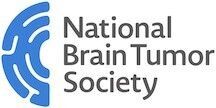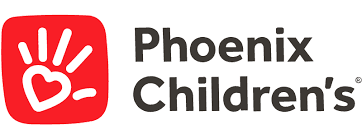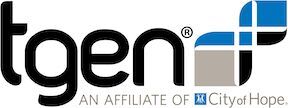
If you want to be in the know about what’s going on at SSBTR, you’ve come to the right place. Be sure to check back regularly to get our latest news updates.
Falling on the Tuesday after Thanksgiving, Giving Tuesday is a time to give back to nonprofits and organizations that help others. This generosity movement allows people and communities to make strides for good and support organizations that make a significant impact. This year, SignUpGenius wanted to donate a total of $2,000 to four nonprofits that you support and love. Here are the winners that were randomly selected:
Just when you thought you've seen it all as a Long Islander, Northwell performs another first. Neurosurgeons at North Shore University Hospital removed a glioblastoma brain tumor using a new imaging tool that transforms the way diseased cells are targeted - the first surgery of its kind on Long Island.
Brain cancer is one of the deadliest cancers. The surgery to remove the tumor is often very invasive. But now engineers at Vanderbilt University have designed a device that can make surgery easier for both doctor and patient, and the same technology also holds promise for lung cancer diagnosis.
A new compound discovered by scientists at Scripps Research may prove to be a powerful weapon in the fight against one of the most aggressive and deadly types of cancer. Just like the cancer it fights, the compound is incredibly strong, selectively targeting the cells that allow glioblastoma multiforme (GBM) to rapidly take over the brain.
A Children's Oncology Group study shows that postoperative radiation improves outcomes for children with ependymoma, even those with historically poor prognoses and the very young
A study found that an inhibitor of an enzyme called ACVR1 slows tumor growth and increases survival in an animal model of diffuse intrinsic pontine glioma (DIPG) -- the most deadly brain tumor in children.
An extremely powerful MRI scanner was used to image proteins in the brain of cancer patients and has shown that protein content correlates with treatment
Researchers report inhibiting activity of a specific protein in glioblastomas boosts their sensitivity to radiation, improving treatment prospects for one of the most common and aggressive forms of brain cancer.
People suffering from two of our most deadly diseases may someday benefit from a new approach being studied at Virginia Tech. Glioblastoma, the deadliest form of brain cancer, and Alzheimer’s disease, the fifth largest killer of people over 65, share a similar disease process even though they’re very different conditions.
A group of University of Arizona researchers believe they've found an important clue in the fight against the kind of cancer that killed Sen. John McCain in August. That clue lies in the DNA found in the cells of long-term and short-term survivors of glioblastoma, an aggressive form of brain cancer.
Doctors usually use the biological characteristics of tumors to observe the progress and response to treatment, such as if there are gene mutations or malignant features. Previous studies have shown that identifying the biological characteristics may contribute to better treatment and may increase survival rates.
Optune, a skullcap developed in Israel that fights cancer using electric frequencies, has extended the lives of patients with glioblastoma, the most aggressive form of brain cancer, by months or even years.
Iranian scientists have managed to produce brain cancer vaccine, an expert in immunology whose company is involved in production of the vaccine has said.
Migraines and headaches often occur among patients with brain tumors and are the most common complaint as the initial symptoms among these patients. Based on their high prevalence, there has been speculation as to whether headaches and migraines should be treated as risk factors for the development of brain tumors or if they should be considered the “first sign” of brain tumors.
The University of Arizona College of Medicine hosted this wonderful event benefitting Students Supporting Brain Tumor Research. Students, physicians and brain tumor survivors all came dressed in their best to join together for a night of Old Hollywood-themed fun for a great cause.
There’s a non-profit organizations like Students Supporting Brain Tumor Research (SSBTR)—completely student-run in Arizona—that are tirelessly devoted to promoting awareness about brain tumors and raising funds for research in hopes of one day finding a cure for the disease.
Standing with NBTS are countless donors and supporters who invest in our efforts. Among those is Students Supporting Brain Tumor Research, the largest student-run non-profit in the State of Arizona, which has donated more than $800,000 to pediatric research at NBTS since 2004.
This video shows SSBTR Student Co-Chairs interviewed by Channel 3 concerning the 15th Annual SSBTR Walk-s-thon on Saturday, 2/17/2016.
"This work has been very successful and has led to the opening of a clinical trial for patients with glioblastoma. Without SSBTR, this would not have been possible."
SSBTR FELLOW ERIC C. WOOLF: It has been postulated that the high-fat, low-carbohydrate, adequate protein ketogenic diet (KD) may be useful in the treatment of brain tumors.
"Team Arizona" headed to Washington, DC to participate in "Head to the Hill" advocacy day sponsored by the National Brain Tumor Society. Arizona is home to Students Supporting Brain Tumor Research.
Join SSBTR and 3,000 of their closest friends and family members Saturday, February 28, at Saguaro High School from 12-3pm for its 14th annual walkathon and carnival as they raise funds to find a cure.
Dozens of Valley high school and middle school students witnessed live brain surgery at Barrow Neurological Institute.
Dozens of Arizona students can now say they've watched a live brain surgery, something not everyone has done.
About 100 Arizona students from Students Supporting Brain Tumor Research (SSBTR) got a chance to see inside a person's mind as they witnessed a real brain surgery taking place at Barrow Neurological Institute.
The low-carb, high-fat ketogenic diet can be an effective tool to manage deadly brain cancer
Students Supporting Brain Tumor Research (SSBTR), the largest student-run organization in Arizona, held it's 13 annual Walk-a-thon on Feb 22, 2014.
SSBTR's brain tumor survivor Zack Hubbard tells his story in a "International Brain Tumour Alliance" feature article.
In the past year, Baratz has facilitated monthly volunteer meetings, coordinated musical entertainment, and enlisted corporate sponsorships and service providers to support SSBTR’s annual walkathon.
Brain surgeons at St. Joseph’s Barrow Neurological Institute educate a special audience each year when dozens of Arizona teenagers representing SSBTR view a live brain surgery and begin their final countdown for their record-setting charity event.
Students from the University of Arizona College of Medicine – Phoenix will hold its 8th annual charity gala on Saturday, Jan. 25, 2014 for Students Supporting Brain Tumor Research, highlighted by a presentation from world-renowned neurosurgeon Robert Spetzler, MD.
Dr. Adrienne Scheck just received official notice that her clinical trial has been approved!! A portion of the money raised by SSBTR over the last several years has helped fund a fellow in Dr. Scheck's lab at Barrow Neurological Institute (Phoenix, AZ). We're so proud of Dr. Scheck and her team.
For Barrow Researcher Adrienne C. Scheck, PhD, diets are far more than a health fad: Dr. Scheck is researching the potential of a therapy known as the Ketogenic Diet to complement traditional treatments for brain cancer such as radiation and chemotherapy.
PHOENIX -- Some high school students were handpicked by their teachers to work alongside research doctors at Barrow Neurological Institute of St. Joseph's Hospital and Medical Center in Phoenix.
These shirts were for the annual SSBTR walk in Scottsdale, az, which stands for Students Supporting Brain Tumor Research.
Students Supporting Brain Tumor Research was founded in 2002 to raise awareness and raise money for the support of brain tumor research after 3 students from Paradise Valley School District died as a result of a brain tumor. SSBTR has quickly become one of the most efficient charitable organizations in the country, the organization has raised over 1 million dollars and contributes 95% of its earnings to brain tumor research with the other 5% covering the costs of event expenses. They've attracted the attention of some very well-known sponsors such as the Arizona Diamondbacks, the Phoenix Suns, Harkins Theatres, Blue-Cross, Blue-Shield of Arizona, American Express, and many others.
What a great show of selfless philanthropy by members of SSBTR, the largest student run non-profit in Arizona.
SCOTTSDALE, AZ (CBS5) - Thousands of Valley high school students are getting together Saturday to raise money for a good cause.
What a great show of selfless philanthropy by members of SSBTR, the largest student run non-profit in Arizona.
(VIDEO from KPHO TV Channel 5): Thousands of Valley high school students are getting together Saturday to raise money for a good cause.
The International Brain Tumour Alliance has had a long-standing relationship with a group of dedicated and amazing students and their mentors in Phoenix, Arizona USA).
Students Supporting Brain Tumor Research (SSBTR) was founded in 2002 after the devastating deaths from brain tumors of three local high school students.
Students Supporting Brain Tumor Research was founded in 2002 after founder Steve Glassman learned of the subject from a friend of his from his home state of Massachusetts who had become involved with the Brain Tumor Society.
Dr Adrienne Scheck, Principal Investigator in Neuro-Oncology Research and Neurosurgery Research at Barrow Neurological Institute in Phoenix,Arizona is also involved with "Students Supporting Brain Tumor Research" and mentors students attached to this initiative. Adrienne Scheck’s laboratory at Barrow is supported by SSBTR funds.
Come Join the University of Arizona and the members of Students Supporting Brain Tumor Research for their annual Walk-a-thon. Saturday March 3rd, 2012 at the University of Arizona campus (mall).
2012 University of Arizona College of Medicine Charity Gala benefiting Students Supporting Brain Tumor Research.
PHOENIX, Ariz. (Feb. 8, 2010): Students from across the Valley will walk up to five miles around the Sun Angel Stadium track on Saturday, Feb. 27 to raise money for brain tumor research during the 2010 Students Supporting Brain Tumor Research (SSBTR) Walk-A-Thon.
The metro Phoenix event, from noon to 3 p.m., is one of two walks also planned in Tucson on Feb. 20 at the University of Arizona mall.







